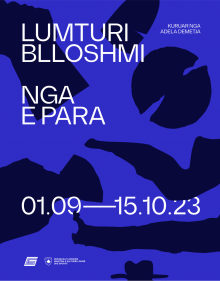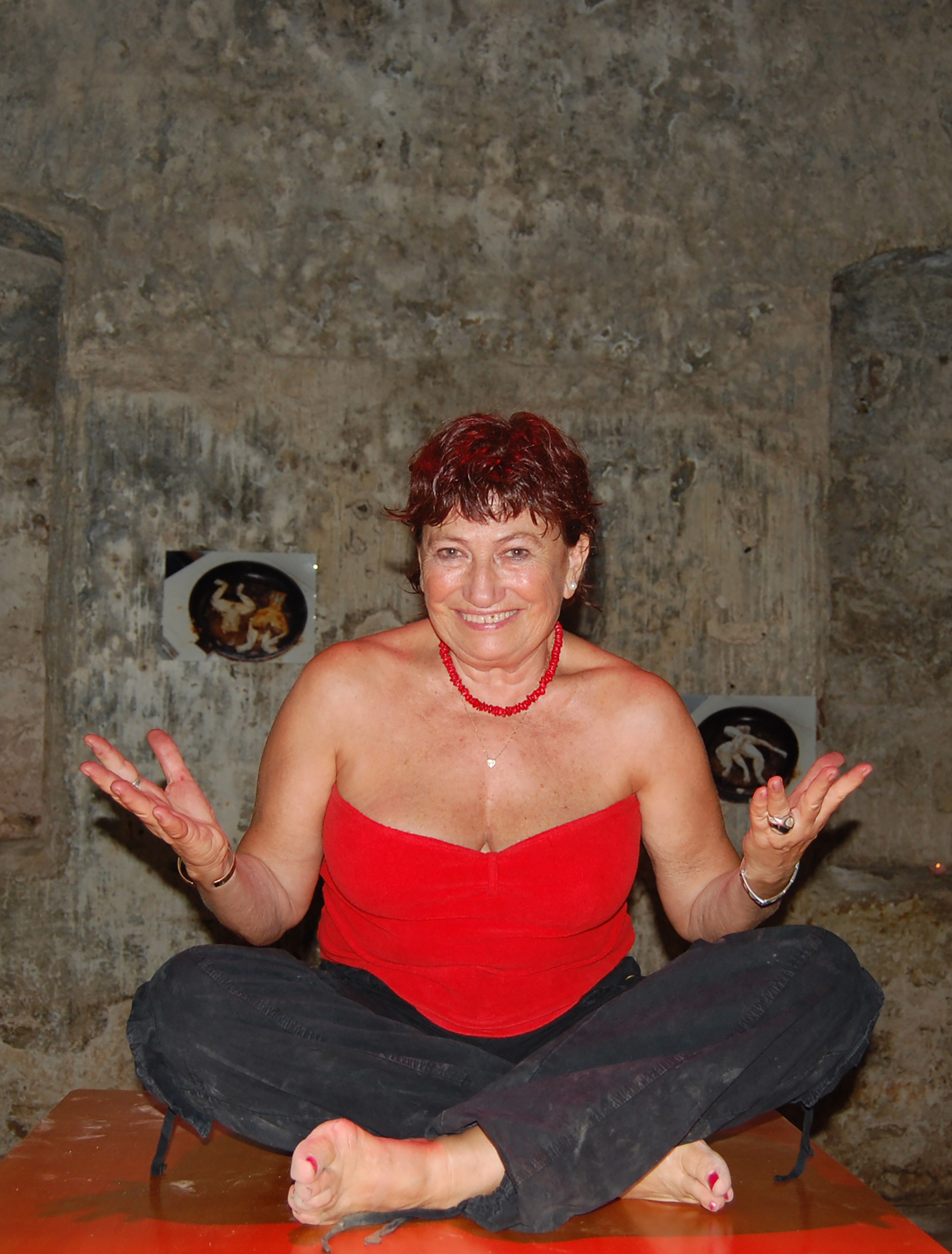
Lumturi Blloshmi

Lumturi Blloshmi (1944–2020) was born and lived in Tirana. Her father, an officer in the Government of King Zog I, was executed by the communists when Lumturi was only two months old. At age five, she lost her hearing due to a meningitis infection. Blloshmi graduated from the Department of Painting at the Academy of Arts in Tirana in 1968. In 1973, she became a member of the League of Writers and Artists, but her membership was revoked from 1974 to 1984, preventing her from exhibiting and continuing her creative practice. After graduating, Blloshmi worked as an offset worker at the Mihal Duri printing house and later as an editor and illustrator at a textbook publishing house until 1989. Until 2004, she worked at several institutions, including the National Art Gallery and the Institute of Culture Monuments in Tirana. Her first solo exhibition took place in 1988 in Berat. In the 1990s, she stood out as one of Albania's best contemporary visual artists, showcasing a synthesis of installation, photography, drawing, and painting. Some of her works are included in the collection of the National Art Gallery in Tirana. Her works have been exhibited in various group and solo exhibitions, including those at institutions such as the Chelsea Art Museum in New York, the Municipal Art Gallery in Bydgoszcz, Poland, Alexandria Biennale for Mediterranean Countries in Egypt, National Art Gallery of Albania, and National Art Gallery of Kosovo. She made history as the first woman artist to represent Albania at the Venice Biennale in its 59th edition. Lumturi Blloshmi passed away on November 27, 2020, due to a Covid-19 infection.